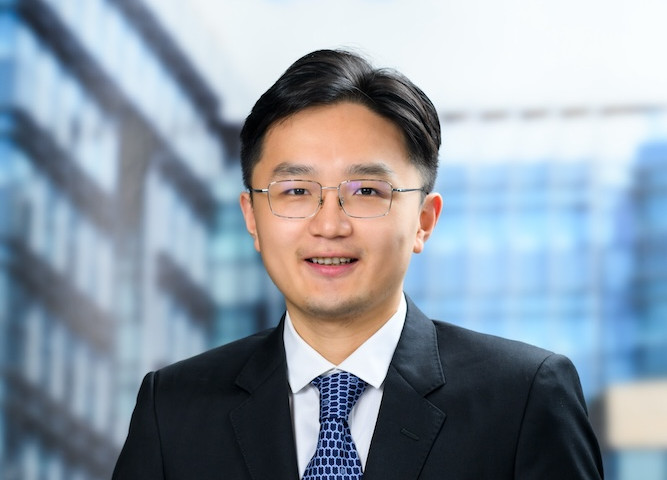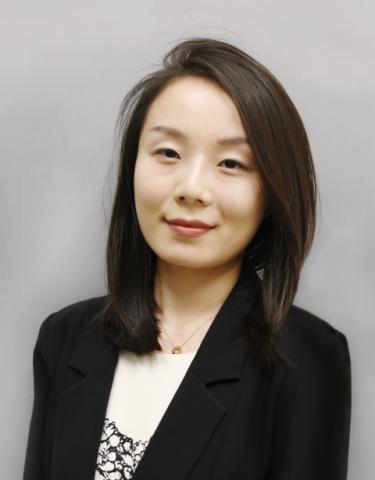Before stepping into the HKUST MBA classroom, Zepei Chen had already built a solid career in private equity, focusing on digital healthcare and new energy in mainland China. But as the global business landscape began to shift, he realized it was time to zoom out—and think bigger. “I think in the past five years, the world has been changing in a way we’ve never seen before,” he says. “Before 2023, the world was rushing into China. But now, China is stepping out into the world.”
This shift inspired Zepei to broaden his perspective—and prepare for a future where Chinese companies go global. “Chinese companies have the potential to become global companies in the coming years. That’s why I came to Hong Kong for my MBA.”
HKUST stood out for its strong research, entrepreneurial spirit, and location at the crossroads of East and West. “Hong Kong is the perfect connection between Chinese companies and the global market. And HKUST is already known for its brilliant research and innovation. It was the natural choice.”
Building an MBA That Fits
Zepei didn’t just sign up for an MBA—he built one that matched his goals. With over half the curriculum customizable, he chose electives that gave him practical insights across industries. “I wasn’t just looking for theory—I wanted to learn from professors who’ve actually worked in the field,” he says.
HKUST’s mix of global faculty, Asia- and China-focused case studies, and hands-on learning helped him connect classroom ideas to real-world action. Inspired by a cross-country thematic fund case from class, he is now exploring region- and country-specific business and capital plans with a listed Chinese healthcare company that fit the current moment.
Learning to Lead with People, Not Just Plans
For Zepei, one of the biggest takeaways from the MBA was learning how to work with people from different backgrounds. “My classmates came from finance, tech, consulting, and more. Working with them taught me how to see things from different angles and lead with empathy,” he shares.
Group projects, student clubs, and leadership workshops helped him rethink how he manages teams. “Before the MBA, I’d take over if someone was struggling. Now, I focus on building trust and helping people grow. A good leader cultivates champions within the team, not mere followers. .”
He also started seeing ESG—Environmental, Social, and Governance—not as a cost, but as a smart investment. “It’s about people and reputation— an enterprise’s soft power and intangible assets. That shift in thinking came from the conversations we had and the way HKUST teaches responsible leadership.”
Finding His Strength in Connecting People
Zepei discovered something unexpected during his time at HKUST: he’s a connector. “I’m not the most outgoing person, but I connect deeply. I remember what people need and find ways to help—whether it’s sharing ideas, making introductions, or spotting opportunities,” he says.
With support from HKUST’s Career and Professional Development team, he sharpened his networking skills and built strong relationships with alumni and industry leaders. “In Hong Kong, if your idea is interesting, people will give you their time—even if you’re a student. That openness is powerful.”
That spirit of connection took him far. On a recent trip to Riyadh, he met HKUST MBA alumni based in the Middle East, exchanging ideas and learning from their experiences. It’s a reminder of how far the HKUST network reaches—and how Zepei makes the most of it.
Owning His Story: Why Your Past Is Your Power
Looking back, Zepei shares a personal insight that shaped his journey: “I think it’s very important to embrace your past. No matter where you’re from, you have to like it—even if you don’t. Embrace your past. It’s your advantage. It’s what makes you different.”
In the investment world he once knew, domain expertise reigned supreme—only a semiconductor Ph.D. could credibly back a semiconductor deal, while finance was deemed a secondary skill. His MBA journey flipped that view: he realized his financial toolkit could bridge roles and industries, weaving together resources to become the go-to problem solver
What’s Next: Bridging Companies, Cultures, and Capital
Looking ahead, Zepei wants to help Chinese companies expand internationally—and support global firms entering China. “I want to be the bridge—not just between companies, but between cultures and capital markets.”
With a clear vision, global mindset, and confidence in his roots, Zepei is ready to lead—and to turn difference into opportunity.

